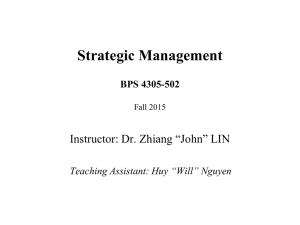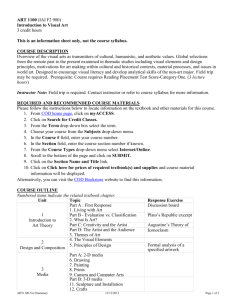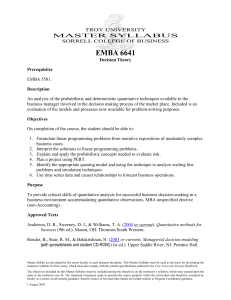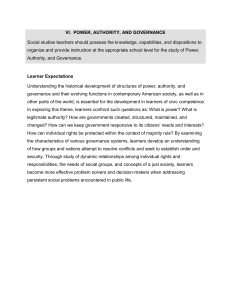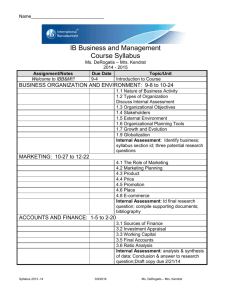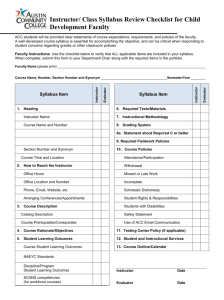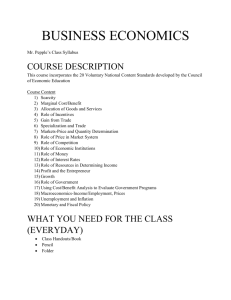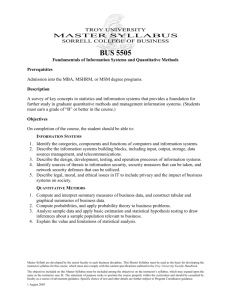Course Committee Outcomes Assessment Evaluation Form
advertisement
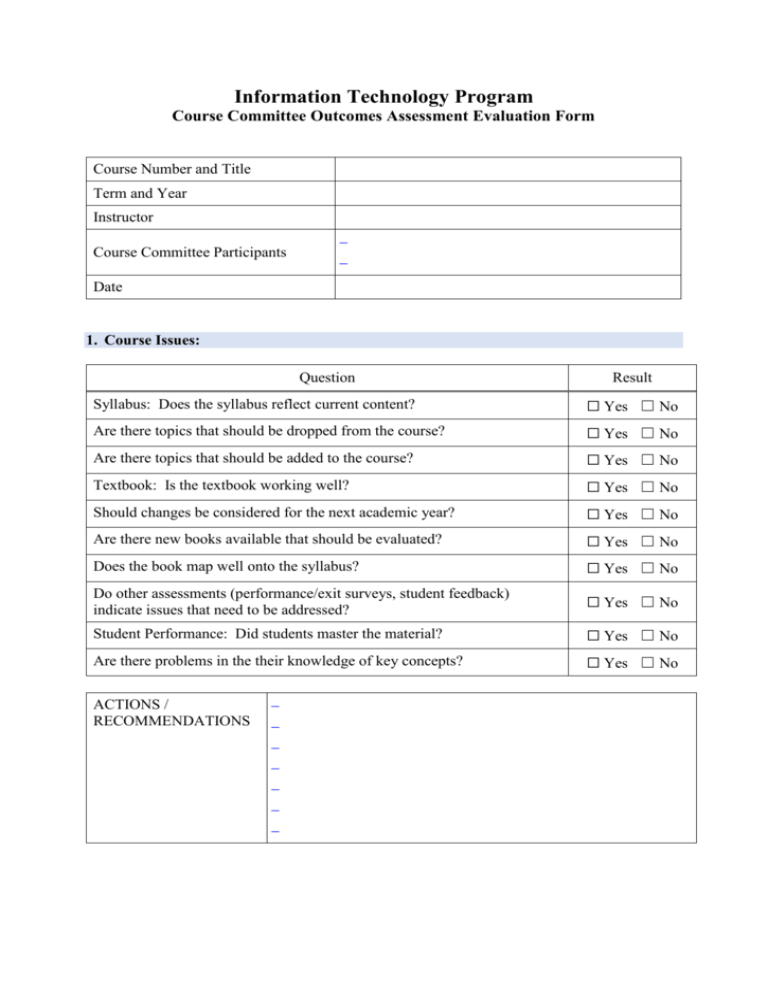
Information Technology Program Course Committee Outcomes Assessment Evaluation Form Course Number and Title Term and Year Instructor Course Committee Participants Date 1. Course Issues: Question Result Syllabus: Does the syllabus reflect current content? ☐ Yes ☐ No Are there topics that should be dropped from the course? ☐ Yes ☐ No Are there topics that should be added to the course? ☐ Yes ☐ No Textbook: Is the textbook working well? ☐ Yes ☐ No Should changes be considered for the next academic year? ☐ Yes ☐ No Are there new books available that should be evaluated? ☐ Yes ☐ No Does the book map well onto the syllabus? ☐ Yes ☐ No Do other assessments (performance/exit surveys, student feedback) indicate issues that need to be addressed? ☐ Yes ☐ No Student Performance: Did students master the material? ☐ Yes ☐ No Are there problems in the their knowledge of key concepts? ☐ Yes ☐ No ACTIONS / RECOMMENDATIONS 2. Program Issues: Question Result Are the pre-requisites still appropriate for this course? ☐ Yes ☐ No Does the course content satisfy the needs of follow-on courses? ☐ Yes ☐ No ACTIONS / RECOMMENDATIONS 3. Evaluation of Outcomes Assessments: Recommendations for course improvement Recommendations to IT program governance (e.g. curriculum committee) Comments/ Recommendations on this process INFORMATION TECHNOLOGY PROGRAM SUMMARY OF COURSE COMMITTEE ANALYSIS Course Number and Title Term and Year Instructor Course Committee Participants Date Evaluation: Outcome: Select an outcome ... Evaluation (satisfactory, unsatisfactory, weaknesses identified, suggested improvements, remarks) Number of students Instruments chosen Select one ... Sample graded student work Select one ... Percentage of students achieving outcome Select one ... Performance value Select one ... Achievement of outcome Select one ... Suggested improvements on achieving outcome Select one ... - Copy and paste the above table as needed. Write the evaluation Instructions to Course Evaluation Committee: The purpose of this form is: 1. To perform *qualitative* analysis of the quantitative data of the outcomes assessed. 2. To document the participation of several faculty in the evaluation of those assessments. 3. To examine and evaluate the various quantitative criteria used, the instruments chosen, the performance, and sample student graded work. 4. To generate recommendations in three categories: a. Recommendations to future instructors. b. Recommendations to curriculum governance. c. Recommendations on improvement of the process. IT PROGRAM OUTCOMES (a) An ability to apply knowledge of computing and mathematics appropriate to the program’s student outcomes and to the discipline. (b) An ability to analyze a problem, and identify and define the computing requirements appropriate to its solution. (c) An ability to design, implement, and evaluate a computer-based systems, processes, components, or programs to meet desired needs. (d) An ability to work effectively in teams to accomplish a common goal. (e) An understanding of professional, ethical, legal, security and social issues and responsibilities. (f) An ability to communicate effectively with a range of audiences for the purpose of supporting and serving the community and the surrounding environment. (g) An ability to analyze the local and global impact of computing on individuals, organizations, and society. (h) Recognition of the need for and an ability to engage in continuing professional development. (i) An ability to use current techniques, skills, and tools necessary for computing practice. (j) An ability to use and apply current technical concepts and practices in the core information technologies of human computer interaction, information management, programming, networking, and web systems and technologies. (k) An ability to identify and analyze user needs and take them into account in the selection, creation, evaluation and administration of computer-based systems. (l) An ability to effectively integrate IT-based solutions into the user environment. (m) An understanding of best practices and standards and their application. (n) An ability to assist in the creation of an effective project plan.


